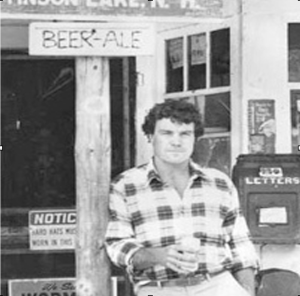There is always a hard shift for me at the end of the summer, and today is that day for me. I miss the freedom of last week: I’d wake in the morning, come out to the deck to write poetry or work on my novel–but now today, I feel like I should be preparing for school, which looms around the corner next week. Wise thinking tells me to disregard my school thoughts and focus instead on the pile of wood that needs to be split, the back of the house that needs to be painted, and the yard work still unfinished.
After lying dormant for a few years, I started working again on Hallow’s Lake, a short story/novella/novel that shows more and more promise to me. The idea for the story (as opposed to having a plot) is to capture the truth about a certain place in a certain place in time. There is no antagonist aside from the cruel and unrelenting vagaries of fate. The characters deal with the common struggle to forge an identity and shape their lives as best they can. The common thread in all of there lives is the voice of a narrator–a voice who simply retells the sketches and scenes from the community that lives on Hallow’s Lake–a place loosely based on Stinson Lake in New Hampshire–which was so pivotal in my life as I grew up, and even after I “grew up.” The narrator is a young man who simply helps people out and, in a sense, is simply there to record the words, actions, and interactions of the characters.
If there is any strength in the writing, I think is in the sketches of ordinary people with ordinary demons consciously and unconsciously helping each other survive in a somewhat isolated community. Nobody’s life is anywhere near perfect and in the unfolding of the scenes, I am trying to imply that each character’s life is incredibly complex, deeply emotional, and surprisingly intellectual–with the implication being that there is no such thing as a minor character in life.
My big issue is–and has been–how to wrap up a story that does not have a linear plot or a easy to recognize conflict around which to focus my readers. My most recent thought is to simply call it poem, not a story–which would solve a lot of my uneasiness surrounding how to “release” this piece. In many ways, it is similar to Dylan Thomas’s approach to writing “A Child’s Christmas in Wales,” though he at least had an abiding and enduring theme around which to hang the images, actions, and memories of a child’s Christmas–his Christmas, perhaps.
So, yes, I will put off school for at least another day…


